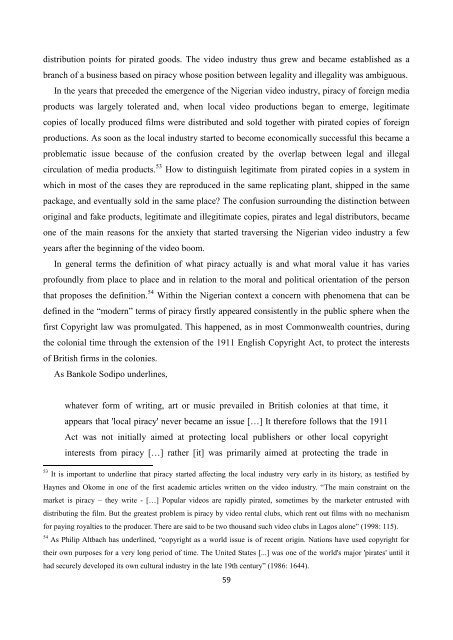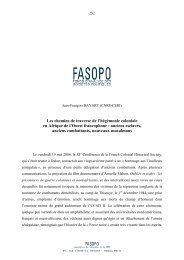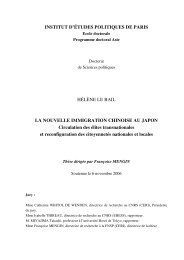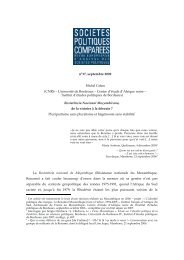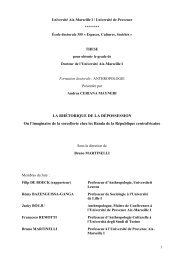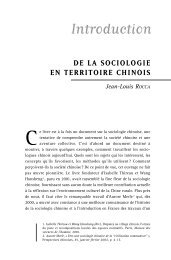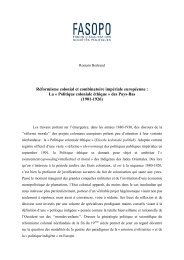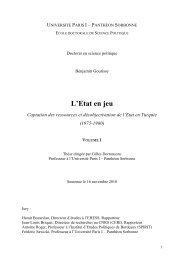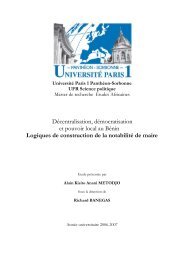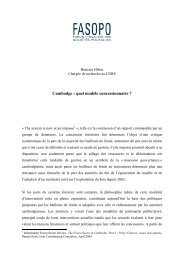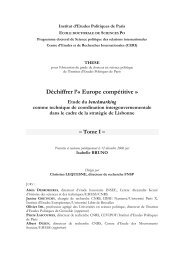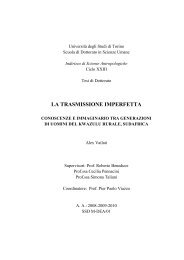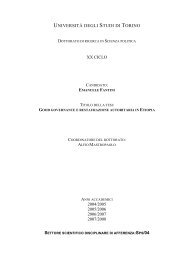Create successful ePaper yourself
Turn your PDF publications into a flip-book with our unique Google optimized e-Paper software.
distribution points for pirated goods. The video industry thus grew and became established as abranch of a business based on piracy whose position between legality and illegality was ambiguous.In the years that preceded the emergence of the Nigerian video industry, piracy of foreign mediaproducts was largely tolerated and, when local video productions began to emerge, legitimatecopies of locally produced films were distributed and sold together with pirated copies of foreignproductions. As soon as the local industry started to become economically successful this became aproblematic issue because of the confusion created by the overlap between legal and illegalcirculation of media products. 53 How to distinguish legitimate from pirated copies in a system inwhich in most of the cases they are reproduced in the same replicating plant, shipped in the samepackage, and eventually sold in the same place? The confusion surrounding the distinction betweenoriginal and fake products, legitimate and illegitimate copies, pirates and legal distributors, becameone of the main reasons for the anxiety that started traversing the Nigerian video industry a fewyears after the beginning of the video boom.In general terms the definition of what piracy actually is and what moral value it has variesprofoundly from place to place and in relation to the moral and political orientation of the personthat proposes the definition. 54 Within the Nigerian context a concern with phenomena that can bedefined in the “modern” terms of piracy firstly appeared consistently in the public sphere when thefirst Copyright law was promulgated. This happened, as in most Commonwealth countries, duringthe colonial time through the extension of the 1911 English Copyright Act, to protect the interestsof British firms in the colonies.As Bankole Sodipo underlines,whatever form of writing, art or music prevailed in British colonies at that time, itappears that 'local piracy' never became an issue […] It therefore follows that the 1911Act was not initially aimed at protecting local publishers or other local copyrightinterests from piracy […] rather [it] was primarily aimed at protecting the trade in53 It is important to underline that piracy started affecting the local industry very early in its history, as testified byHaynes and Okome in one of the first academic articles written on the video industry. “The main constraint on themarket is piracy – they write - […] Popular videos are rapidly pirated, sometimes by the marketer entrusted withdistributing the film. But the greatest problem is piracy by video rental clubs, which rent out films with no mechanismfor paying royalties to the producer. There are said to be two thousand such video clubs in Lagos alone” (1998: 115).54 As Philip Altbach has underlined, “copyright as a world issue is of recent origin. Nations have used copyright fortheir own purposes for a very long period of time. The United States [...] was one of the world's major 'pirates' until ithad securely developed its own cultural industry in the late 19th century” (1986: 1644).59


